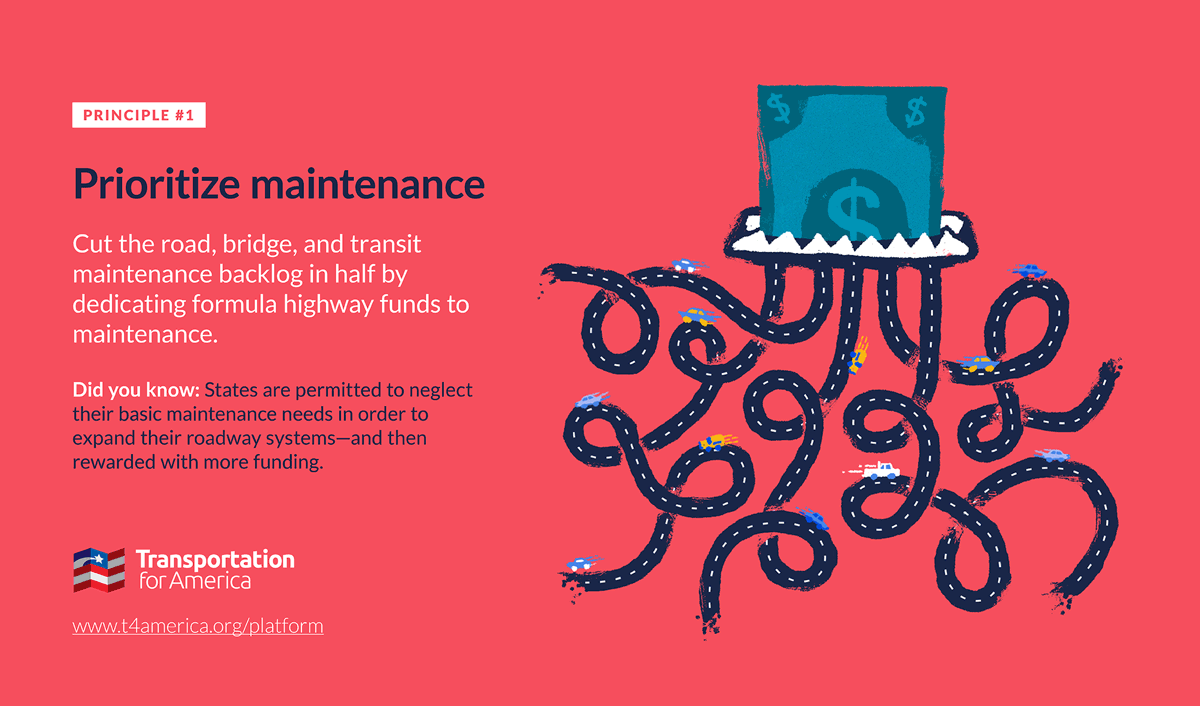Posts Tagged "safety over speed"
We need to expand the conversation on transportation safety
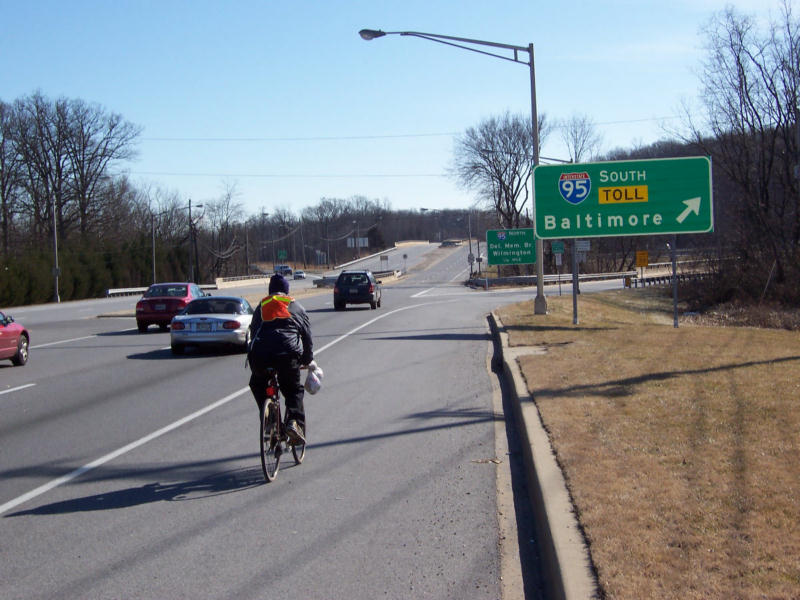
We can’t significantly address safety concerns if we’re not looking at the most dangerous modes of transportation.
Pedestrian deaths are up by a staggering 75 percent since 2010
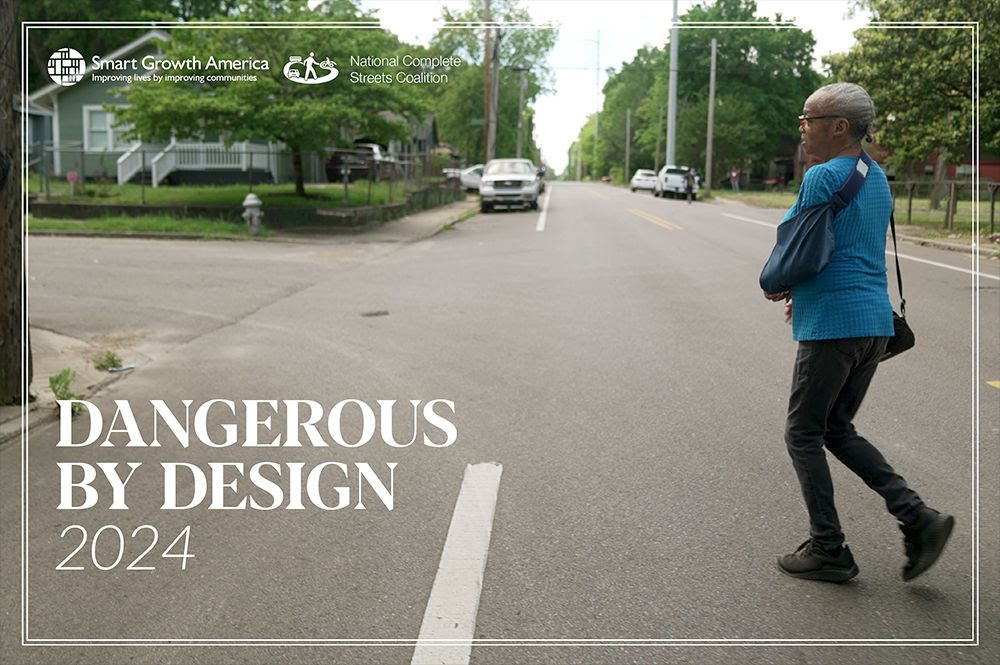
The 2024 edition of Dangerous by Design is out now, combining federal data with lived experience to unpack the connection between roadway design and the ever-increasing record deaths of people walking. The report ranks the most dangerous metros in the United States based on pedestrian fatalities from 2018 to 2022.
Rethinking the intersection to prioritize safety over speed
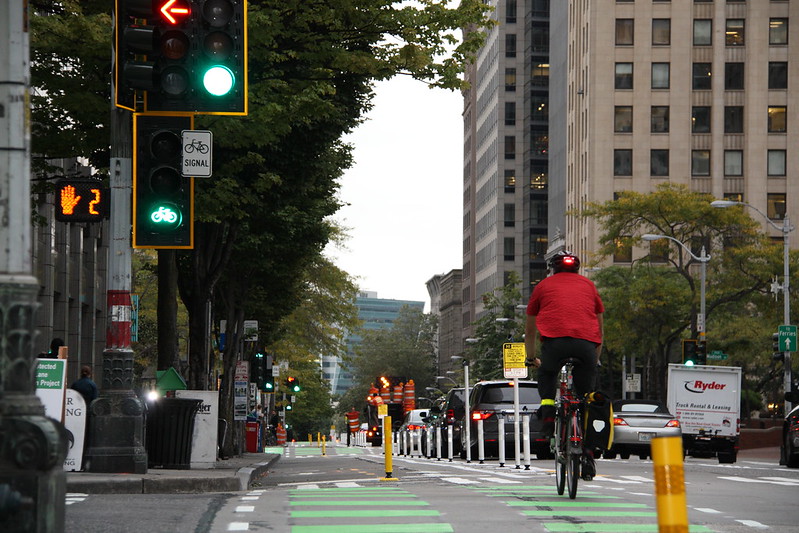
The rising rate of pedestrian fatalities is a consequence of deadly design decisions that prioritize driver speed and convenience over the safety of all other road users. Today, we dig into one example: crosswalk signals.
Celebrating 20 years of Complete Streets
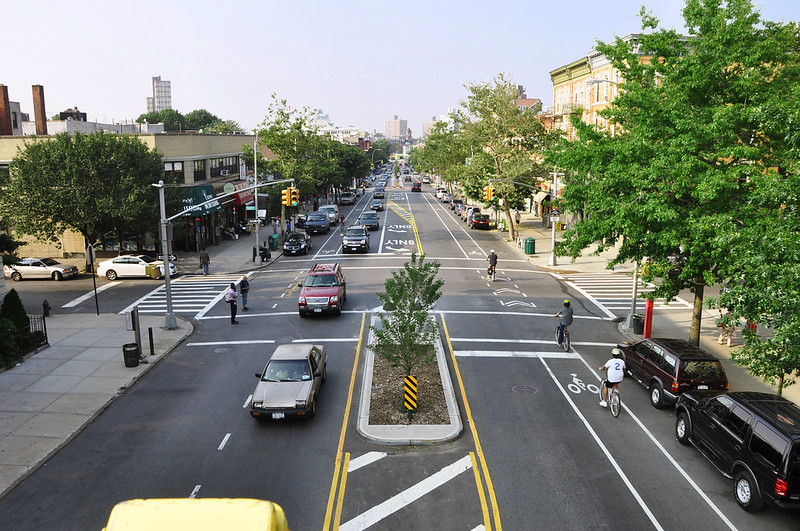
The term “Complete Streets” was coined two decades ago, and while a lot of progress has been made, the fight for safe streets is far from over. To commemorate 20 years of the Complete Streets movement, we’ve rounded up some resources that can help you keep up the fight.
Road feels unsafe? DOT says prove it!
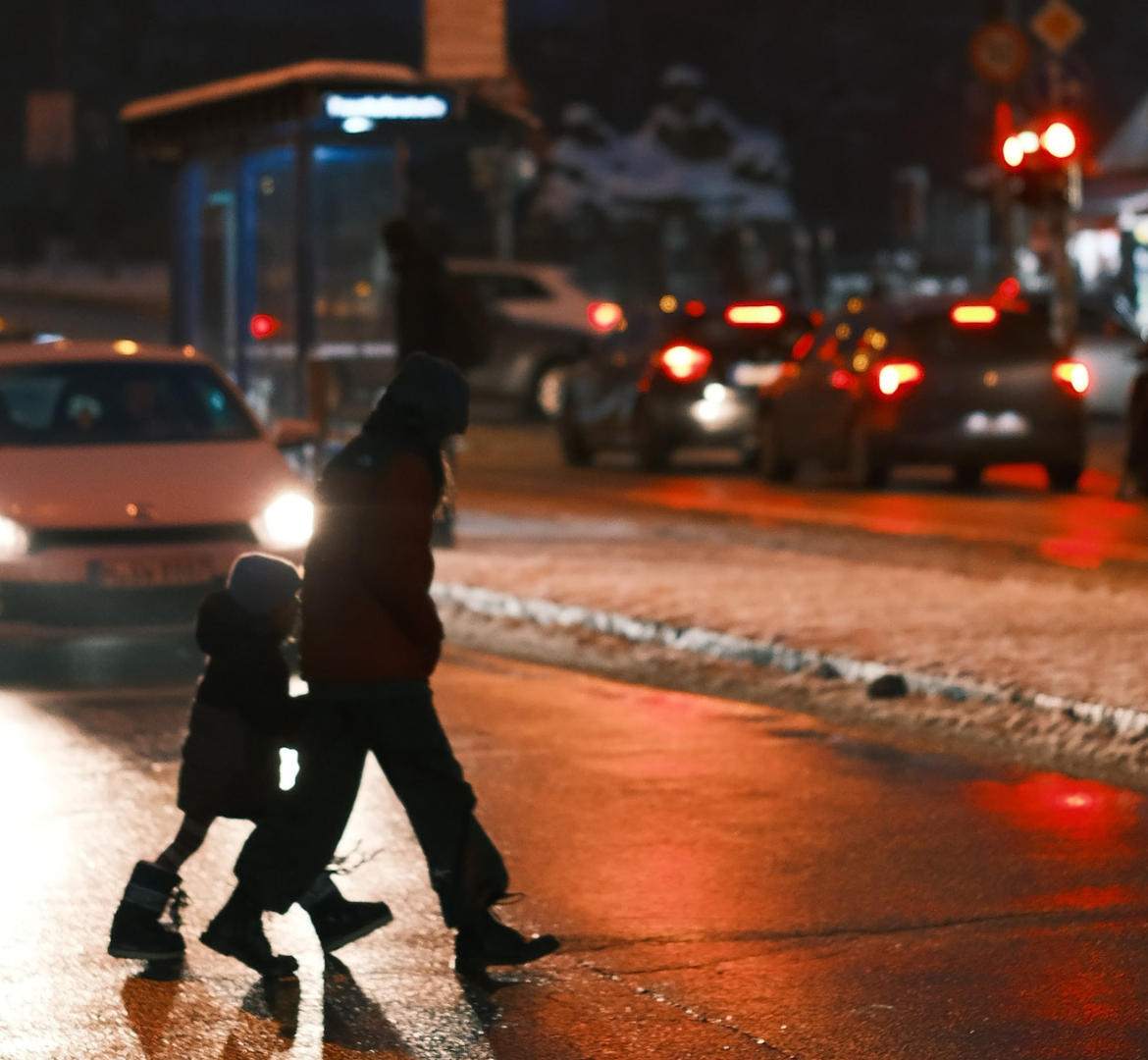
In the United States, where and how traffic deaths occur are painfully predictable. But even with historically high levels of funding available, traffic engineering standards and federal policy combine to create a safety catch-22, ensuring that a transportation agency walking the walk on traffic safety is the exception, not the rule.
AVs aren’t solving our transportation problems. They’re automating them.
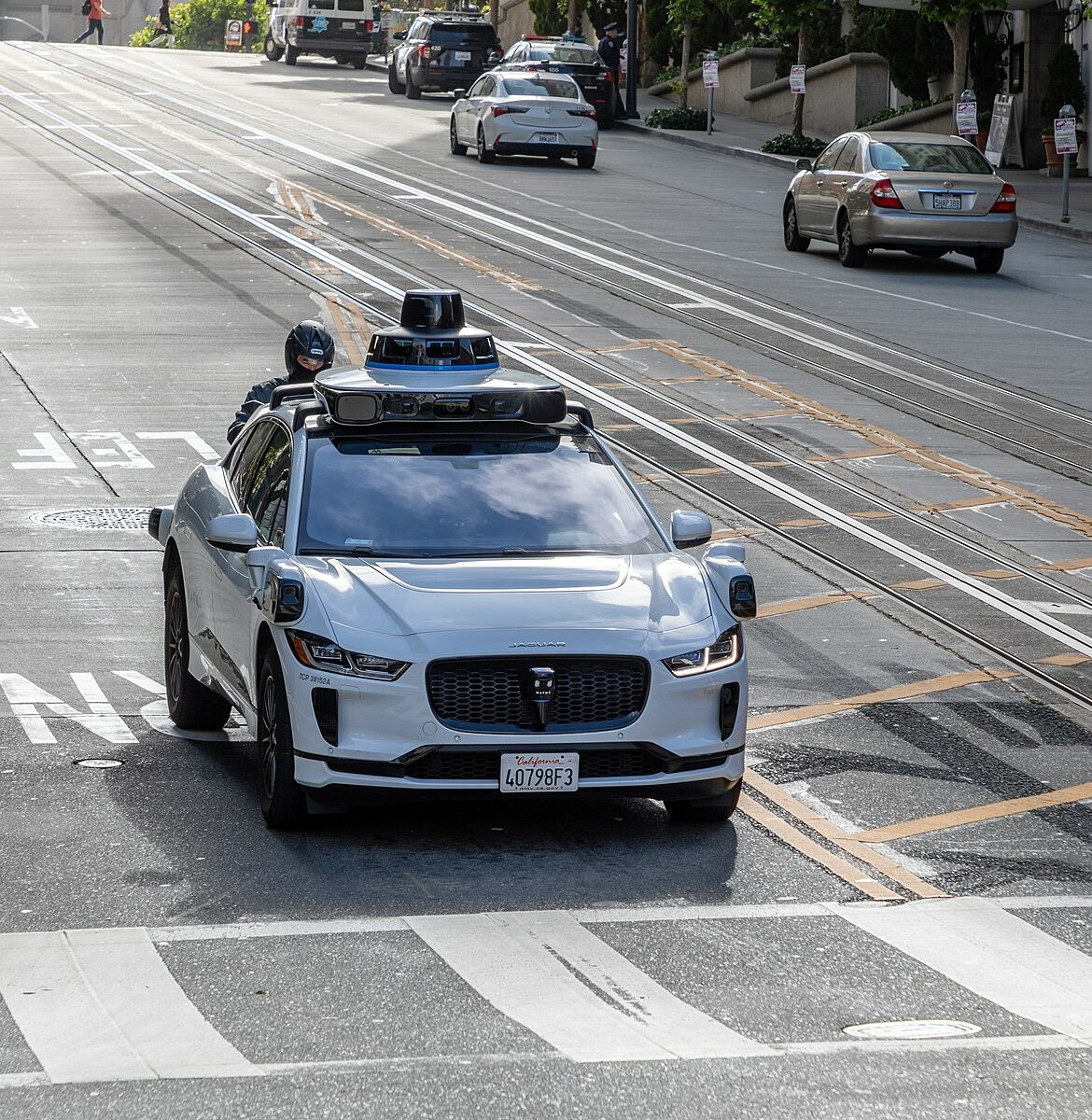
Autonomous vehicles (AVs) have been dangled as a transportation “silver bullet” for decades. Now, they’re finally operating as robo-taxis in San Francisco. However, the Bay Area’s experience with these vehicles so far shows that it’s our reliance on cars—not who’s behind the wheel—that’s our most pressing problem.
VIDEO: Pedestrian fatalities continue to rise. Here’s why.
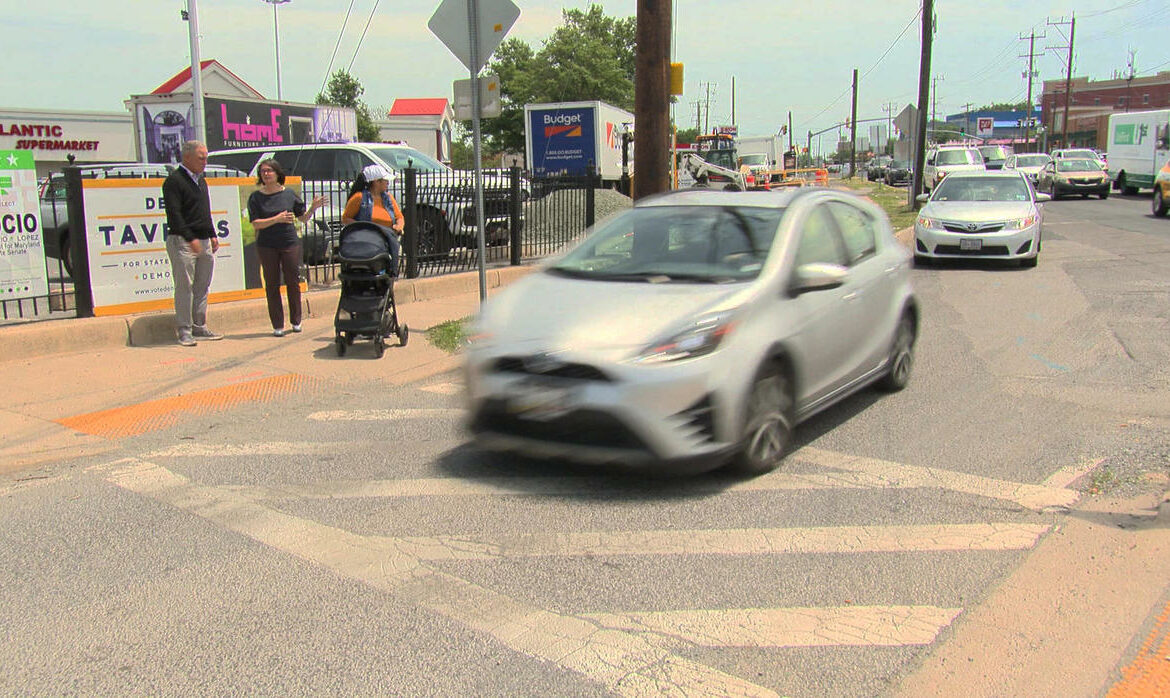
In a conversation with CBS Sunday Morning, T4A’s executive director Beth Osborne explains that our roads are dangerous by design.
Rising fatalities a sign to modernize federal design framework
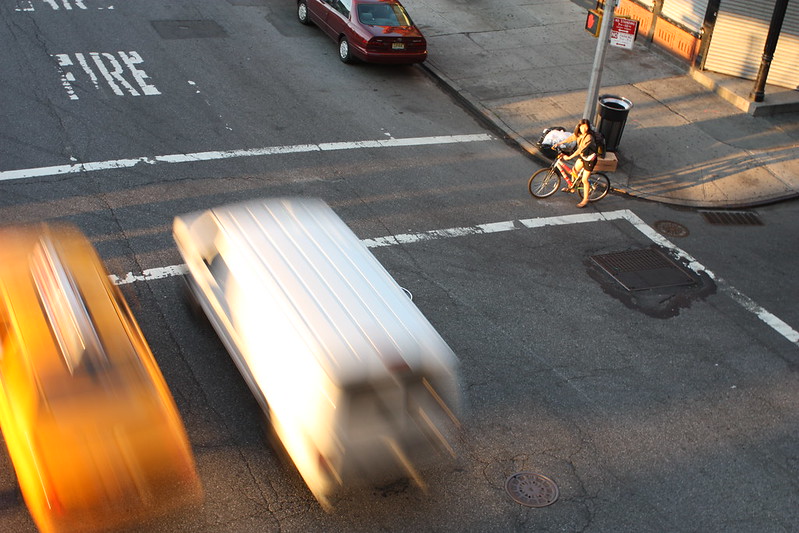
Despite a binding requirement to release an updated version more than a month ago, the Federal Highway Administration missed the deadline to release a new edition of a federal handbook with national influence on street design. There were many positive changes proposed for this edition, but unless this delay comes because further improvements are underway, this new edition might ultimately be another green light for increasing traffic fatalities.
Eliminating driver error doesn’t work. What does? Part II: Designing solutions
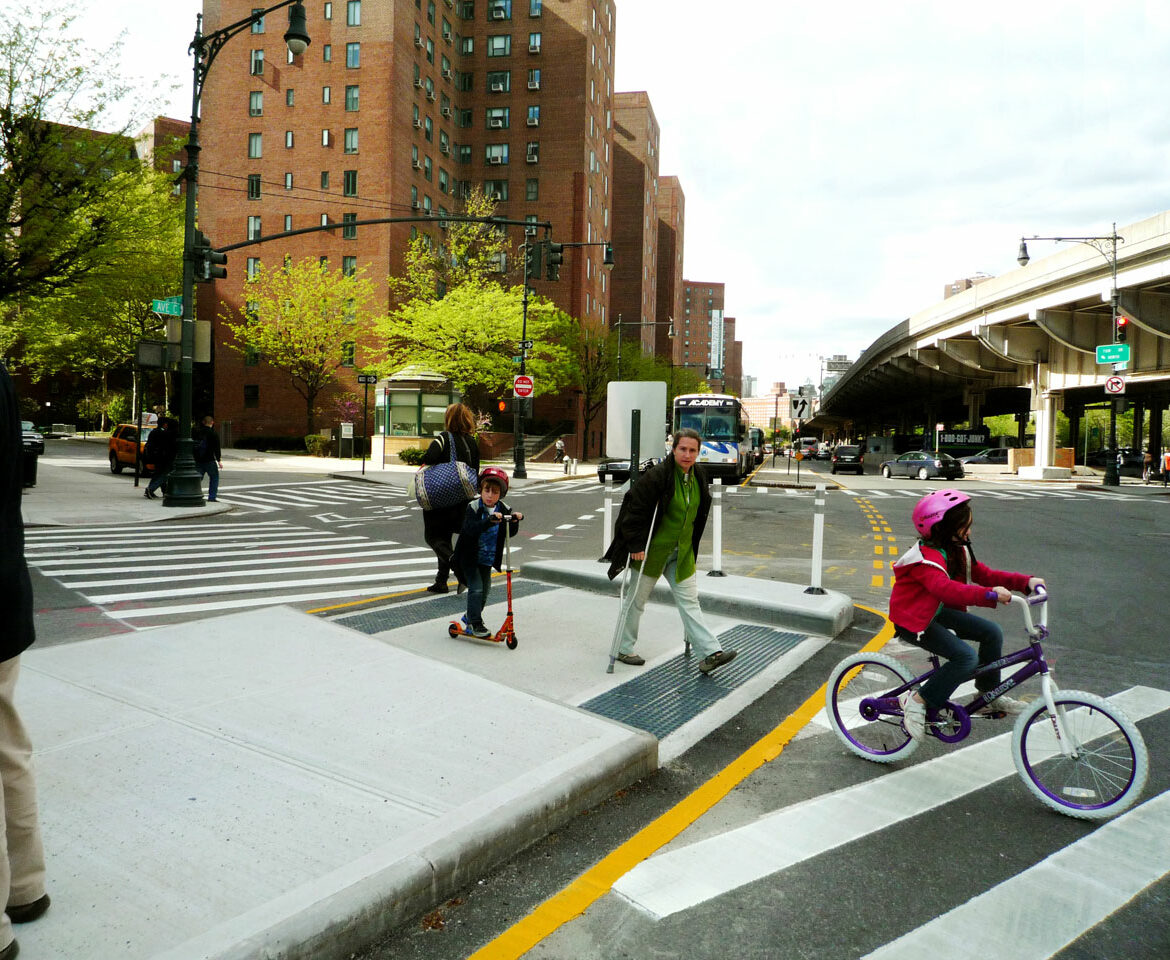
Design-based solutions, which accept and plan for human mistakes, can avoid the pitfalls of behavioral solutions. A recent report from New York City’s Department of Transportation sheds some light on which of those solutions work best—and for whom.
We’re living in an arterial world
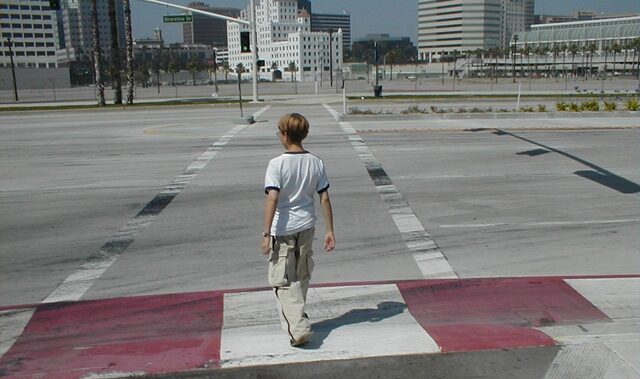
The 99% Invisible podcast discussed the Netflix show Old Enough, where Japanese children run their first errands, explaining how street design lets the show’s participants be both safe and independent from a young age. We explore the flip side of this coin in the United States, where convenience for cars becomes a major inconvenience for anybody who can’t drive one.
New reconciliation package includes funds for safety, access

In response to the proposed Inflation Reduction Act of 2022, Transportation for America Director Beth Osborne released this statement.
A decade of prioritizing speed over safety has led to 62 percent more deaths
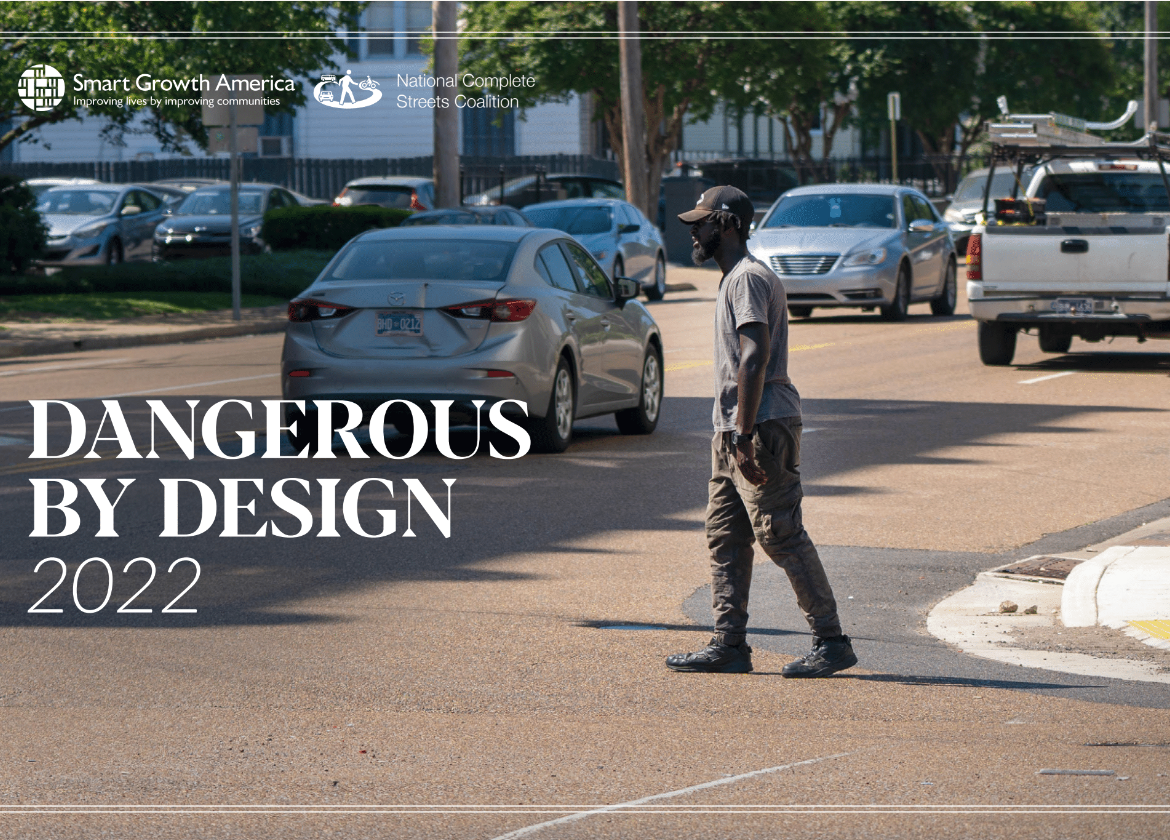
Smart Growth America’s new report Dangerous by Design 2022 uses more data than ever to understand how design impacts travel behavior. The findings confirm what we’ve always known: it’s impossible to prioritize both safety and keeping cars moving quickly.
WATCH: Safety and vehicle speed are fundamentally opposed
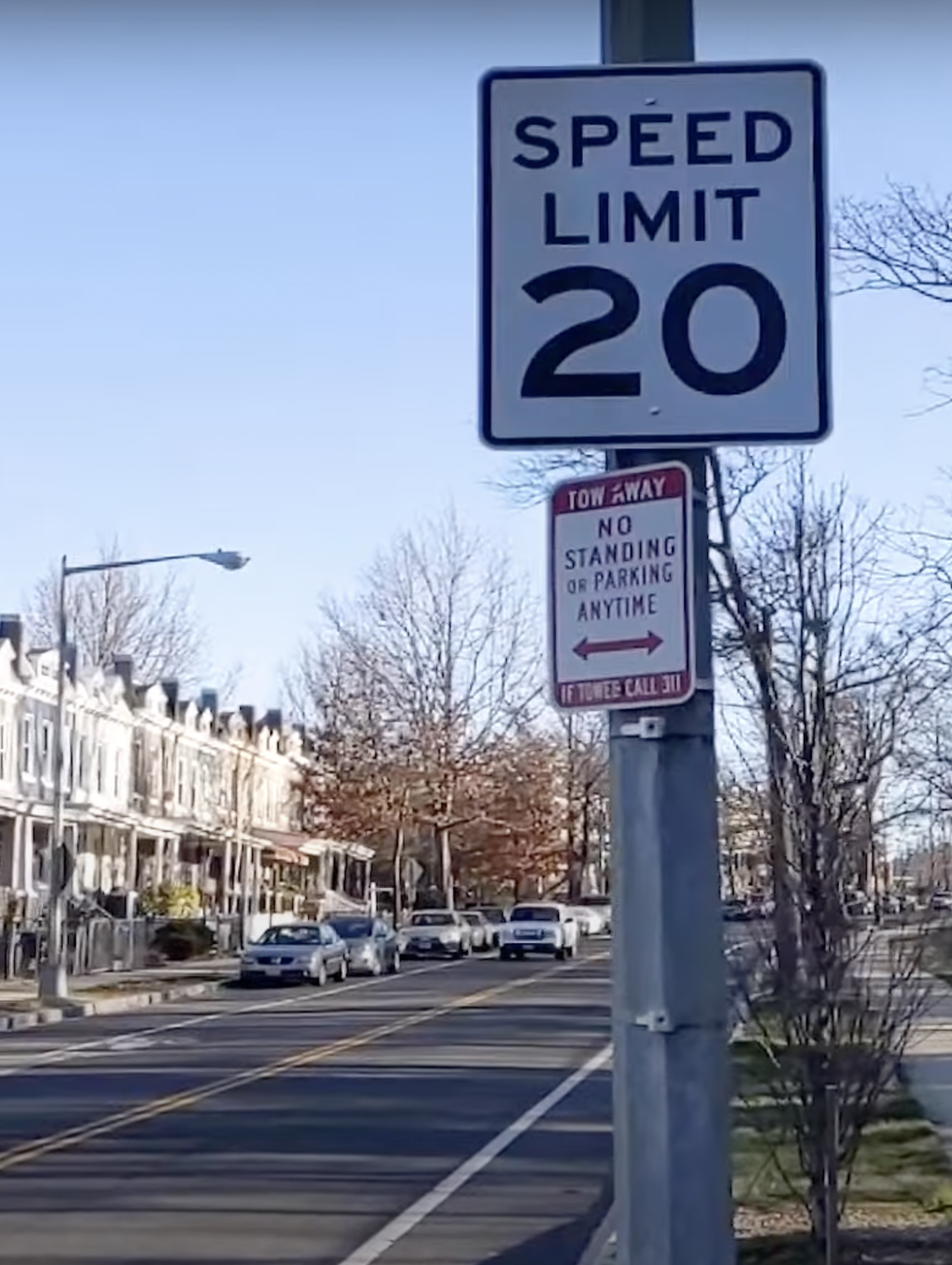
Sometimes we have to see it to believe it. How would street design really look if we prioritized the safety of all road users? Smart Growth America and the National Complete Streets Coalition’s latest video illustrates that when streets are designed to move as many cars as possible as quickly as possible, other road users pay the price.
VIDEO: Beth Osborne explains our broken approach to setting speed limits with WSJ
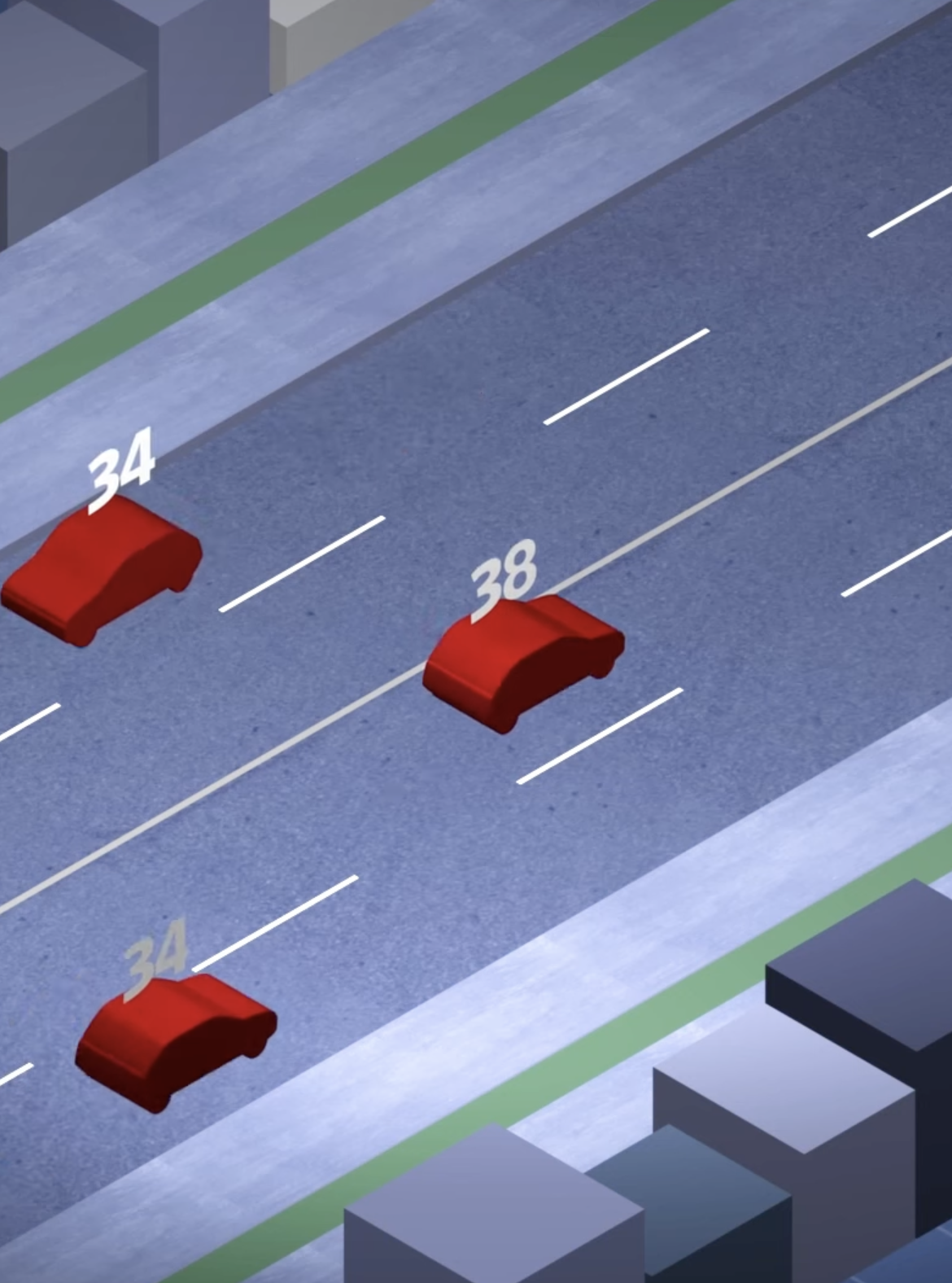
T4America director Beth Osborne joined Wall Street Journal correspondent George Downs to explain why one controversial method for setting speed limits results in higher and higher speeds.
Longer trips, faster speeds, fewer options: What’s really valued in the “value of time”?
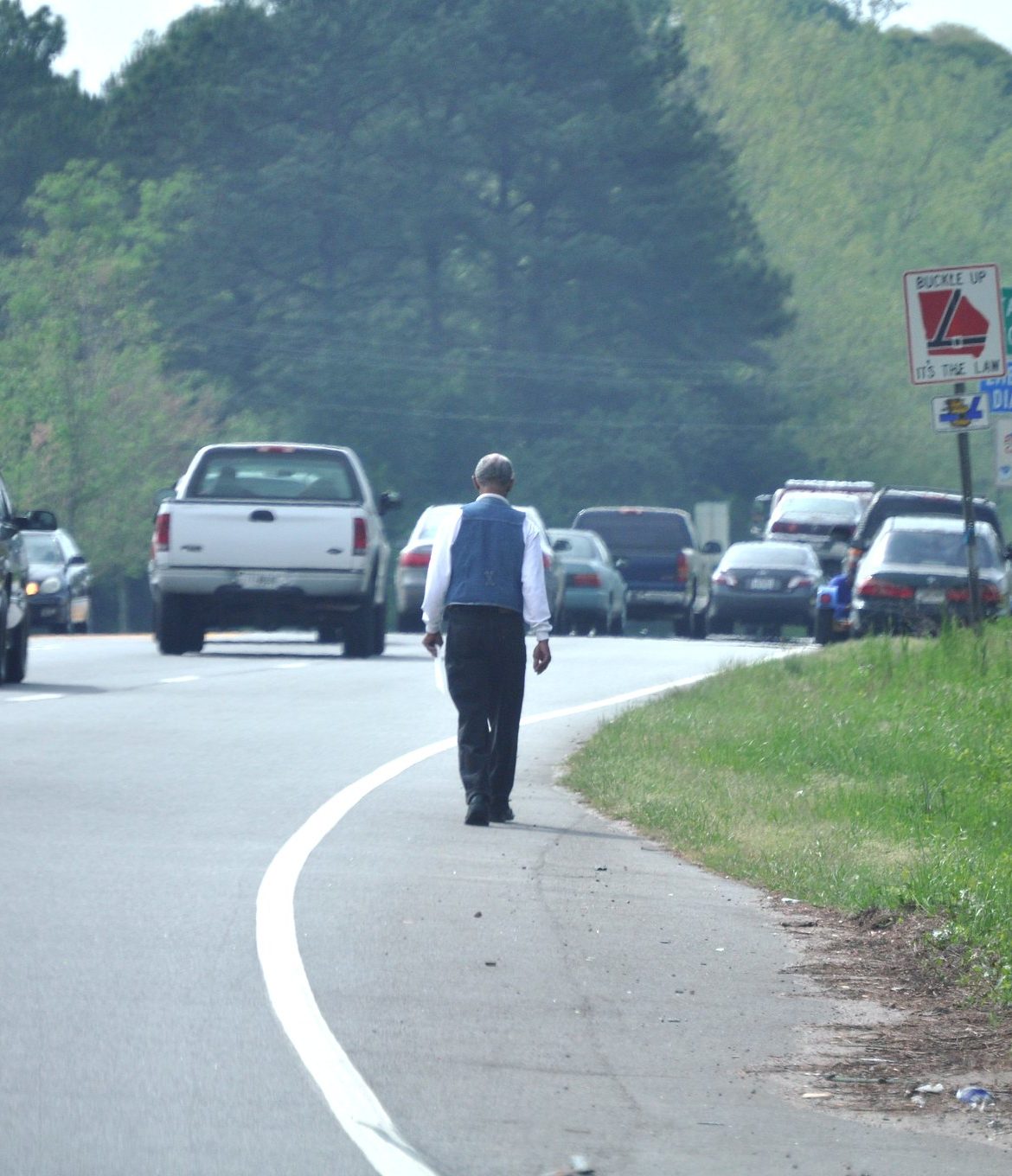
Despite its name, the federal “value of time” guidance doesn’t actually value travelers’ time at all. Instead, this arcane but influential measure focuses on one thing: vehicle speed. The result is more dangerous, less convenient travel for everyone.
USDOT road safety strategy finally acknowledges the importance of design on speeds and roadway deaths

On the release of the new Roadway Safety Strategy by the U.S. Department of Transportation, T4America director Beth Osborne issued this statement
Lemonade from lemons: Improvements worth celebrating within flawed infrastructure bill
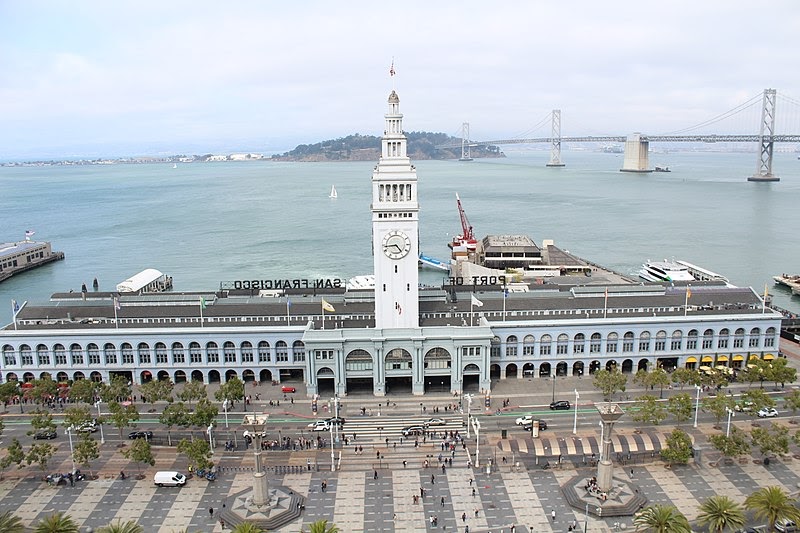
Money from the finalized $1.2 trillion infrastructure deal is already flowing out to states and metro areas who are plugging it right into projects both already underway and on the horizon. After covering six things the administration should do immediately to maximize this mammoth infusion of unexpected cash, here’s a longer look at some of the law’s incremental or notable successes, with the aim of equipping the administration and advocates alike to steer this money toward the best possible outcomes.
Behind the scenes on the rise in pedestrian and cyclist fatalities and injuries
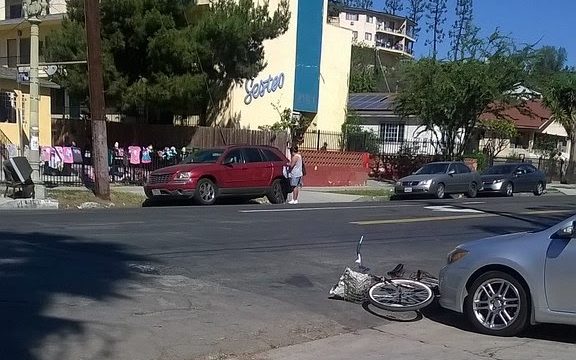
Driver expectations, higher speeds resulting from less congestion, major gaps in infrastructure, and a systemic criminalization of pedestrian and cyclist traffic on the road have contributed to the alarming, record increases in the deaths of people struck and killed while walking or biking, according to researchers.
Month of Action Week 2: Tackling our deadly streets
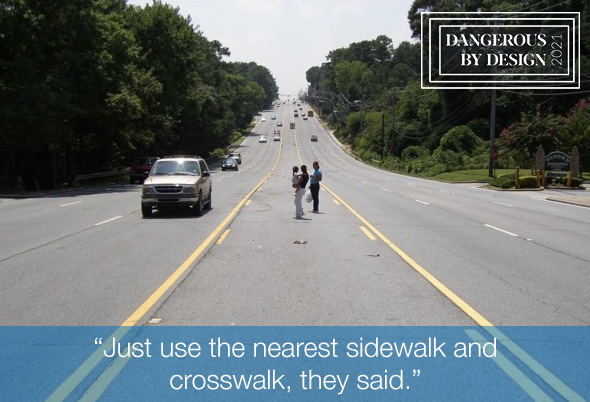
With Congress writing long-term transportation policy this month, we need to make sure that this bill doesn’t continue the broken status quo. This week, we need you to take action to support the Complete Streets Act.
Unsafe streets in marginalized communities lead to inequitable traffic enforcement
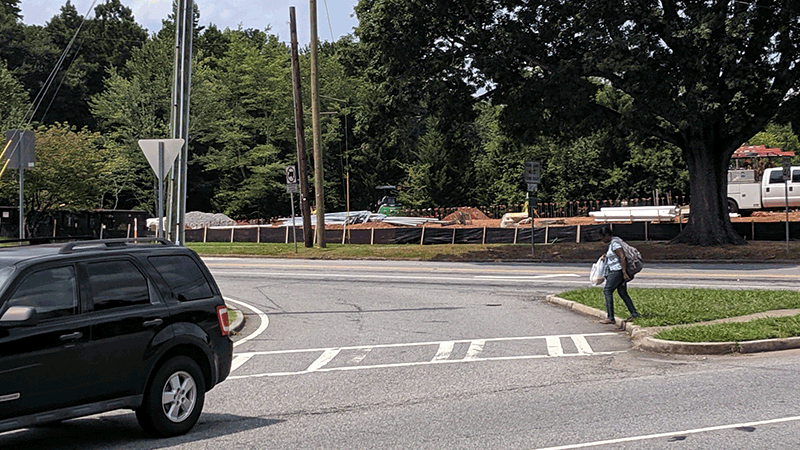
Equitable enforcement of traffic rules is a major national discussion. But under-discussed is the role dangerously-designed streets play in putting Black and brown people in a perilous position: break traffic law and risk interacting with police, or put themselves in harm’s way when navigating unsafe infrastructure. Here’s our recap on a recent House hearing on equitable enforcement of traffic rules.





